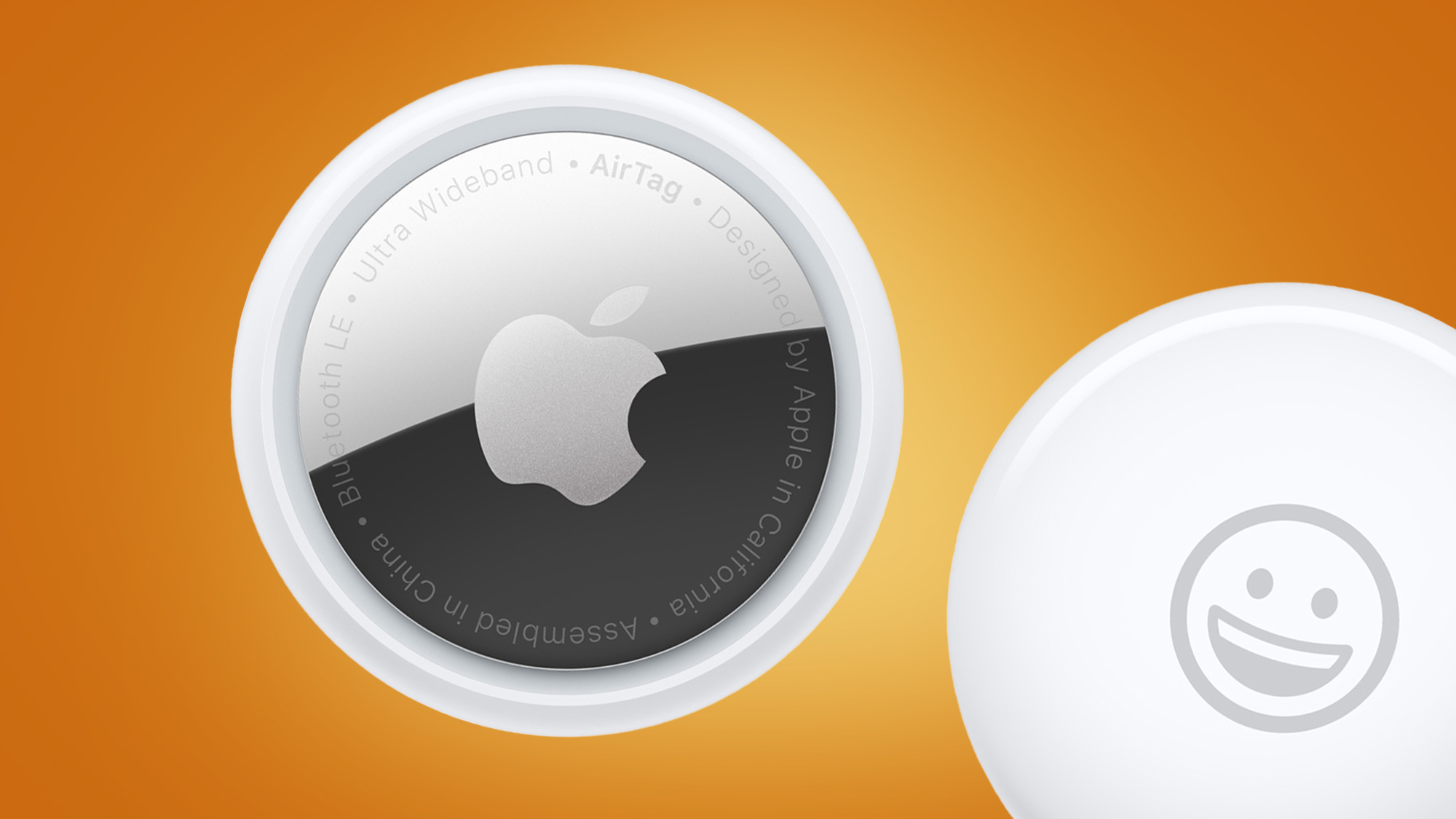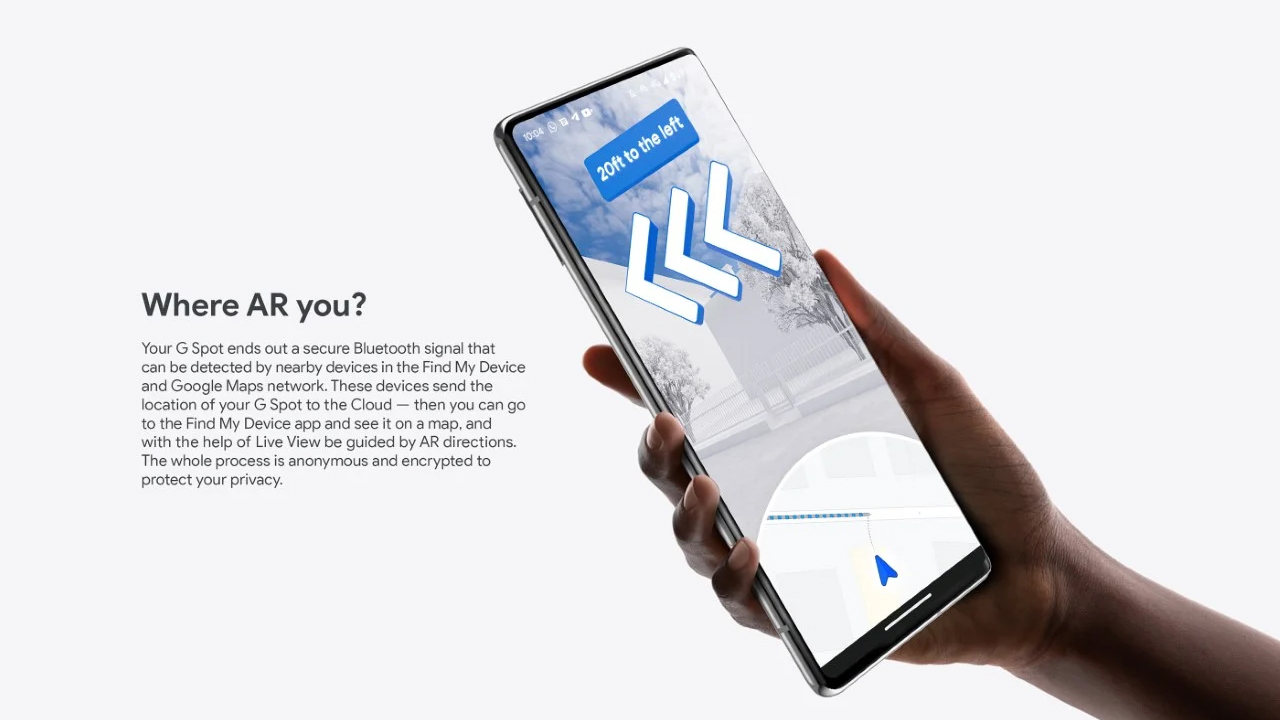Google’s incoming AirTag rival could be an Android moment for Bluetooth trackers
Bluetooth trackers are about to go nuclear – for good and bad

Google is strongly rumored to be launching its own Bluetooth location tracker to rival Apple's AirTag and Tile this year – and it could take the little object-finding tools to the next level, for good and bad.
The reliable leaker Kuba Wojciechowski has unearthed a lot of evidence for the Google AirTags, codenamed Grogu, suggesting that it's both real and could arrive at Google I/O 2023. Like AirTags, they apparently have an onboard speaker for emitting sounds from lost devices and pack both UWB (Ultra-wideband) and Bluetooth Low Energy connectivity.
But the feature that could make Google's device an Android-sized moment for trackers is its upcoming version of Apple's 'Find My' network. Google's tracker is expected to support Fast Pair, an existing Android feature that helps you find nearby Bluetooth devices. And with Google apparently bringing support for trackers and locator tags to Fast Pair, another giant object-tracking ecosystem could be imminent.
Google's 'Finder Network' (as separate rumors have branded it) could really take Bluetooth trackers mainstream. If your Apple AirTag is out of Bluetooth range, you can still get location info thanks to the 'Find My' network, which anonymously uses the Bluetooth connections of fellow Apple users to look for other trackers. But AirTags are naturally tied into Apple devices, whereas Google's system could be open to both global Android users and third-party manufacturers.
It's worth mentioning that Google is currently working with multiple chipset manufacturers to bring support for the new Fast Pair-based technology to their products to enable OEMs to develop their own trackers without much hassle.January 16, 2023
The leaker Kuba Wojciechowski claims that Google is working with several chipset makers "to bring support for the new Fast Pair-based technology to their products". Combine multiple manufacturers making an Android version of AirTags, plus the several billion Android devices out there, and you have a potentially huge Bluetooth tracking network.
Android devices do currently have a Google Find My Device function, but this is restricted to remotely encrypting lost devices or finding their last known location based on your own connection. A crowd-sourced 'Finder Network' would take that to another level entirely, potentially making it much easier to find devices – but also opening up the same possibilities for misuse that have dogged Apple's AirTags.
Another potential boost for Google's system is that your phone or tablet apparently won't need to have UWB connectivity to work with the so-called 'Finder Network'. According to Kuba Wojciechowski, Bluetooth Low Energy will be enough – and that would help open it up to current devices, rather than just new ones.
Get daily insight, inspiration and deals in your inbox
Sign up for breaking news, reviews, opinion, top tech deals, and more.
Analysis: The end of losing things?

Google is clearly working on more than just a rival to AirTags or Tile – it appears to be building its own vast 'Find My' network, with Android as the foundation. And that could be big deal if you're prone to losing expensive tech or prized possessions.
At last year's Google I/O 2022 conference, the company revealed that there were over three billion active Android devices in the world. With that level of reach, the 'Finder Network' (or whatever it's ultimately called) could make Bluetooth trackers an almost essential purchase for the absent-minded.
But it could also raise lots of new privacy concerns, too. Apple has done a lot to address issues with so-called 'AirTag stalking', where the trackers have been used to follow people without their knowledge. You'll now get an alert if an AirTag has been following you for a while or if you're near an unknown AirTag.
This system doesn't work brilliantly for everyone, though, with the equivalent app for Android requiring you to check manually for AirTags rather than scanning away in the background. These are the kinds of issues that Google's trackers and network will need to iron out, particularly if they're anonymously linked to a good proportion of those three billion global Android devices.
With third-party manufacturers also apparently invited to Google's tracker party, though, the potential is huge – and the next year could see the AirTag and Tile concept taken to vast new scale.

Mark is TechRadar's Senior news editor. Having worked in tech journalism for a ludicrous 17 years, Mark is now attempting to break the world record for the number of camera bags hoarded by one person. He was previously Cameras Editor at both TechRadar and Trusted Reviews, Acting editor on Stuff.tv, as well as Features editor and Reviews editor on Stuff magazine. As a freelancer, he's contributed to titles including The Sunday Times, FourFourTwo and Arena. And in a former life, he also won The Daily Telegraph's Young Sportswriter of the Year. But that was before he discovered the strange joys of getting up at 4am for a photo shoot in London's Square Mile.